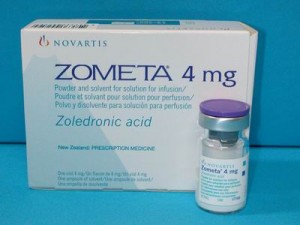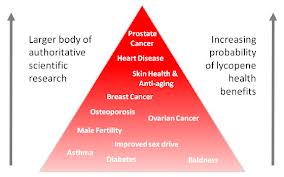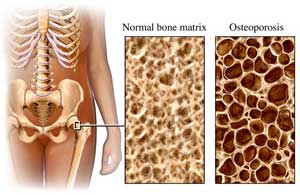Standards in breast cancer treatment have been surgery, radiation therapy and chemotherapy. In hormone receptor positive cancer types Tamoxifen has been the drug of choice for many years to achieve suppression of the ovaries in premenopausal women. A new medication under the name of Anastrozole has also been introduced. In the meantime researchers have examined the success of the various approaches. No difference has been found between Anastrozole and Tamoxifen, but a new drug which has been used for osteoporosis patients shows that it can boost disease free survival for breast cancer patients. The medication called zoledronic acid taken in combination with either Tamoxifen or Anastrozole can increase disease free breast cancer survival by 36%. Zoledronic acid can inhibit tumor cell growth and stimulate the immune response, and the lead author of the study, Dr. Michael Gnant concludes that the combination treatment creates a tumor-hostile environment. The benefits are not only a reduction of bone metastases but others as well.
The most concerning side effect is osteonecrosis of the jaw, but the researcher reported that in the trial not a single case has materialized. Other researchers, such as Dr. Martine Piccart-Gebhart , professor at the department of oncology at the University of Brussels caution that this is an important trial, but it should not be seen as a practice-changing trial. More work is needed to establish the best dosage and treatment schedule. More results from other trials investigating the combination treatment with zoledronic acid are expected this summer.
More information about breast cancer: http://nethealthbook.com/cancer-overview/breast-cancer/
National Review of Medicine, June 2008, page 18 and 19
Comment on Nov. 17, 2012: There is criticism regarding Zoledronic Acid because of osteonecrosis of the jaw and the fact that biophosphonates also have the metatasis suppressing effect. See this link.
Last edited November 4, 2014








